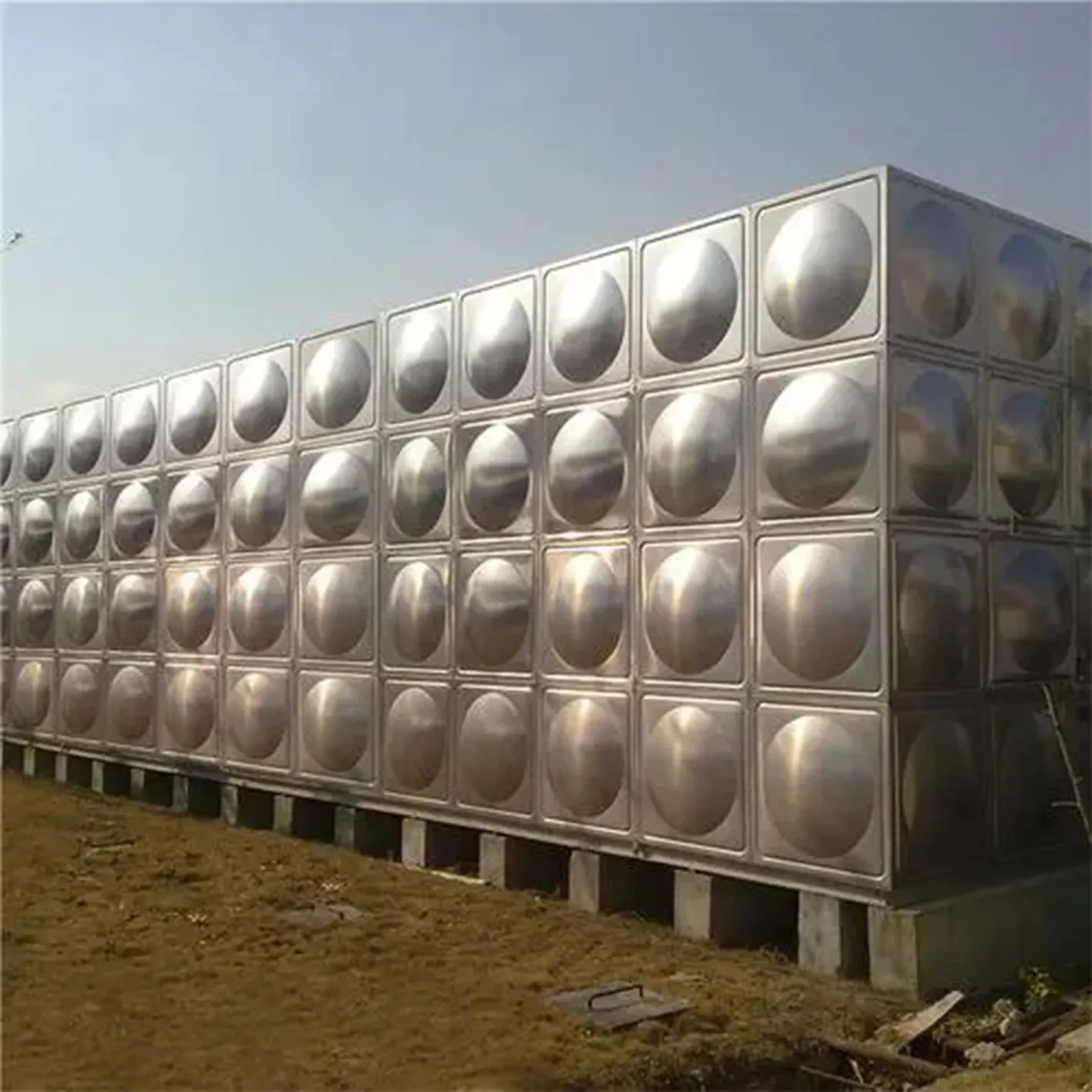loading...
- No. 9, Xingyuan South Street, Dongwaihuan Road, Zaoqiang County, Hengshui, Hebei, China
- admin@zjcomposites.com
- +86 15097380338
- Welcome to visit our website!
Exploring the Applications and Benefits of FRP Pressure Vessels in Modern Industries
FRP Pressure Vessels An Overview
Fiber Reinforced Polymer (FRP) pressure vessels have gained significant popularity across various industries due to their impressive combination of properties, including durability, lightweight, corrosion resistance, and superior strength-to-weight ratio. These vessels are designed to handle high-pressure applications and are commonly used in sectors such as chemical processing, water treatment, oil and gas, and aerospace.
What are FRP Pressure Vessels?
FRP pressure vessels are composite materials made from a polymer matrix reinforced with fibers, typically glass or carbon fibers. This combination results in a structure that possesses both high tensile strength and resistance to environmental factors, making them ideal for containing liquids and gases under pressure. The manufacturing process generally involves the layering of resin and reinforcement materials, which are then cured to form a solid, durable structure.
Advantages of FRP Pressure Vessels
1. Corrosion Resistance One of the most significant benefits of using FRP is its resistance to corrosion. Traditional metal pressure vessels can corrode over time when they are exposed to harsh chemicals and environmental conditions. FRP vessels, on the other hand, maintain their integrity in aggressive environments, reducing maintenance costs and extending service life.
2. Lightweight Compared to steel or other metal vessels, FRP vessels are considerably lighter. This reduced weight makes them easier to transport, install, and handle, ultimately leading to lower shipping and installation costs.
3. Customization FRP manufacturing techniques allow for a high degree of customization. Vessels can be tailored to specific shapes, sizes, and performance requirements, making them versatile for various applications.
4. Thermal Insulation FRP materials have lower thermal conductivity compared to metals. This characteristic helps in maintaining temperature stability within the vessel, making them suitable for applications that require precise thermal control.
5. Cost-Effectiveness Although the initial investment for FRP vessels can be higher than traditional materials, the long-term savings in maintenance and replacement costs can make them more economical over time.
frp pressure vessels

Applications of FRP Pressure Vessels
FRP pressure vessels are utilized in numerous applications across different industries. Some common uses include
- Chemical Storage Many chemicals used in industrial processes are corrosive and can degrade metal vessels. FRP vessels provide a safe and reliable alternative for storing such chemicals, balancing safety with performance.
- Water Treatment In water and wastewater treatment facilities, FRP vessels are used to house filtration systems and chemical dosing operations, effectively handling a variety of water qualities.
- Oil and Gas The oil and gas industry increasingly employs FRP for its ability to withstand corrosive environments found in offshore applications, including pipelines and storage tanks.
- Aerospace With its lightweight and strength characteristics, FRP is also used in aerospace applications where weight reduction is critical for efficiency and performance.
Challenges and Considerations
Despite their many advantages, FRP pressure vessels are not without challenges. One of the primary concerns is the potential for fiber and resin degradation under certain chemical exposures or extreme temperatures. Additionally, the initial costs and the need for specialized installation techniques can be a barrier for some organizations. Regular inspections and maintenance are also crucial to ensure optimal performance and longevity.
Conclusion
FRP pressure vessels represent a significant advancement in material science, offering a unique combination of strength, lightweight characteristics, and resistance to corrosive environments. As industries continue to look for sustainable and efficient solutions, the adoption of FRP technology is expected to grow. By understanding both their benefits and limitations, organizations can make informed decisions on the use of FRP pressure vessels in their operations, leveraging the advantages that these innovative materials provide.
-
GRP Structures: The Future of Lightweight, High-Performance EngineeringNewsJun.20,2025
-
FRP Water Tank: High-Performance Storage for Corrosive and Clean Water SystemsNewsJun.20,2025
-
FRP Square Tube: The New Industry Standard for Chemical and Structural ApplicationsNewsJun.20,2025
-
FRP Pultruded Profiles: The Ultimate Choice for Lightweight Structural StrengthNewsJun.20,2025
-
FRP Handrails: The Safer, Smarter, and Stronger Choice for Modern InfrastructureNewsJun.20,2025
-
FRP Grating: The Smart Solution for Durable, Lightweight Industrial FlooringNewsJun.20,2025
-
Why Choose a Galvanized Water Tank for Your Storage NeedsNewsMay.21,2025
